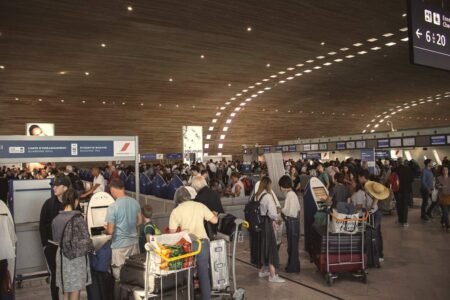The European Commission, recognising the important role of tourism in the European economy, has been increasingly involved in tourism since the early 1980s, in co-operation with the Council, the European Parliament, the European Economic and Social Committee and the Committee of the Regions.
Advertisement
An important step forward was taken with the establishment of the Tourism Advisory Committee in 1986, the role of which is to facilitate exchange of information, consultation and co-operation on tourism (Council Decision 86/664/EEC establishing a consultation and co-operation procedure in the field of tourism, of 22.12.1986). At present the Advisory Committee, which is composed of representatives from all Member States, provides information on the measures taken at national level in the area of tourism. This Committee meets several times a year.
The decision of the Council of Ministers to declare the year 1990 “The European Year of Tourism” was designed to emphasise the role of tourism and to develop a coherent policy approach, (Council Decision 89/46/EEC of 2.12.1988), along with the 1992 three year Action Plan to Assist Tourism (Council Decision 92/421/EEC of 31.07.1992).
Following its 1995 Green Paper on the Role of the Union in the field of Tourism, in order to stimulate a debate on the Union’s role in tourism, the European Commission adopted (30 April 1996) a proposal for a Council Decision on a First Multiannual Programme to assist European Tourism (“Philoxenia” 1997-2000). The Commissions’ proposal received the favourable opinion of the other European institutions – the European Parliament, the European Economic and Social Committee and the Committee of the Regions, nevertheless the Council of Ministers was not been able to reach an unanimous agreement and the the Commission formally withdrew its proposal in April 2000.
The Community activities representing tourism were thus embedded in the “Tourism and Employment” process.
The process “Tourism and employment”
On 4-5 November 1997 a joint Presidency/Commission Conference on Tourism and Employment was held in Luxembourg on the theme of tourism and employment (Conference on ‘Employment and Tourism: Guidelines for Actions’ – Final Report)
In order to give a practical orientation to the results of the Conference a High Level Group on Tourism and Employment was set up.
The Group’s mandate was to examine the conditions in which tourism could make a greater contribution to growth and stability in employment in European tourism, and to make recommendations. The setting up of the group confirmed the Commission’s determination to stimulate the contribution of tourism-related activities to growth and employment.
The High Level Group was composed of qualified tourism professionals from all Member States. Its report was presented on 22 October 1998 (European tourism: new partnerships for jobs. Conclusions and Recommendations [476 KB] of the High Level Group on Tourism and Employment, October 1998.
Further to this report, the Commission identified the follow-up measures needed to implement the Group’s recommendations (Enhancing tourism’s potential for employment COM (1999) 205 final – 28.04.1999).
On 21 June 1999 the Internal Market Council adopted comprehensive conclusions welcomed the achievements, and envisaged further work on specific topics between the Commission, the Member States, and the industry.
As a consequence, the Commission and the Member States agreed to set up four working groups each dealing with one of the four topics specified in the Council conclusions:
- to facilitate the exchange and dissemination of information, particularly through new technologies (Working Group A);
- to improve training in order to upgrade skills in the tourism industry (Working Group B);
- to improve the quality of tourist products (Working Group C); and
- to promote environmental protection and sustainable development in tourism (Working Group D)
These groups started working in February 2000. In addition, a special working group managing the impact of new technologies in the tourism sector (Working Group E) started work in early 2001.
All groups tabled their reports on recommendations in the summer of 2001. These reports were important material for the Commission Communication ‘Working together for the future of European tourism’.
Commission Communications on EU tourism
In the Communication on ‘Working together for the future of European tourism’ (COM(2001) 665 final of 13.11.2001) the Commission outlined its ideas on how best to exploit the European tourism sector’s competitive potential. The Communication is the final milestone of the “tourism and employment” process that was launched four years earlier.
On 21 May 2002, the Council of Ministers unanimously adopted a resolution, based on the Commission Communication, presenting an important step further in the new co-operative approach for the European tourism sector. For the first time, the Council adopted a resolution specifically on tourism, in which it urged closer monitoring of the impact of EU legislation on the tourism sector, suggested further examination of promoting Europe as a destination, and invited the industry to support the efforts undertaken by the European Community and the Member States.
As a concrete follow-up to one of the ten measures that the Commission announced in its Communication ‘Working together for the future of European tourism”, the Commission called for an EU-wide drive to enhance the economic, social and environmental sustainability of European tourism in its Communication ‘Basic orientations for the sustainability of European tourism’ (COM(2003) 716 final of 21.11.2003). This Communication emphasised, in particular, the need to ensure the consistency of various Community policies and measures affecting the sustainability and the competitiveness of tourism industry.
In February 2005, the Commission proposed a new start for the Lisbon Strategy, focusing the European Union’s efforts on two principal tasks – delivering stronger, lasting growth and more and better jobs. In order to respond to modern challenges, while making the best use of available resources and taking advantage of all possible synergies, the Commission proposed a renewed European tourism policy’ in its Communication on ‘A renewed tourism EU policy: towards a stronger partnership for European Tourism’ (COM(2006) 134 final of 17.03.2006). The renewed EU tourism policy has as a main aim to improve the competitiveness of the European tourism industry and create more and better jobs through the sustainable growth of tourism in Europe and globally.
In October 2007, the Commission launched its medium-long term strategy for the achievement of a sustainable and competitive European tourism. Thereby, an important message is addressed to stakeholders to undertake the necessary steps in view of strengthening the contribution of sustainable practices to facilitate the competitiveness of Europe as the most attractive tourism destination. The Communication on an Agenda for a sustainable and competitive European Tourism (COM(2007) 621 final of 19.10.2007) also expresses a message of commitment by the Commission to this “agenda” process. Furthermore, the Communication builds the framework for the implementation of supportive European policies and actions in the tourism domain as well as in all other policy areas which may have an impact on tourism or on its sustainability and competitiveness.
Source: European Commission







